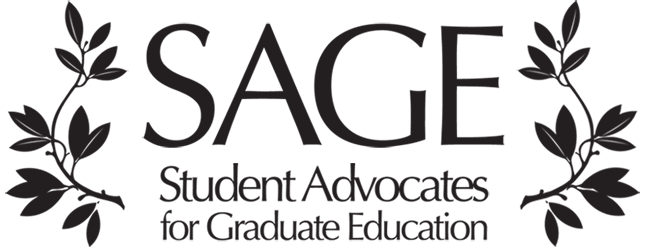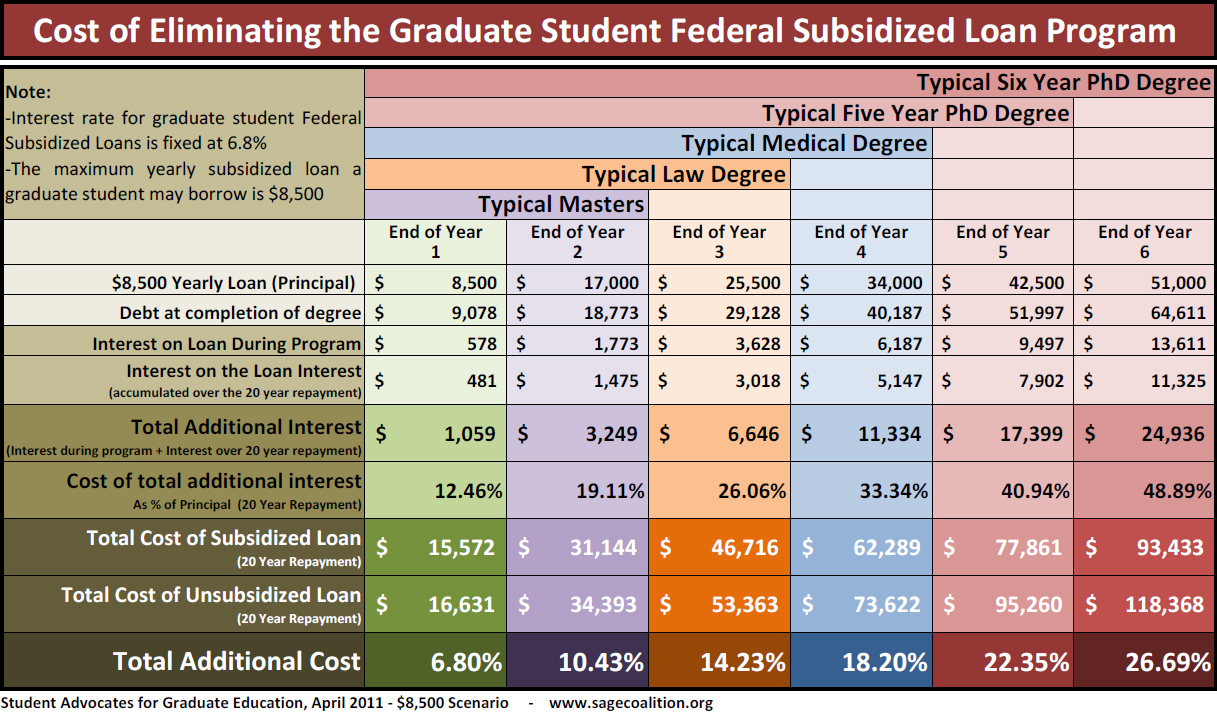Each year, SAGE organizes a Conference at Washington, D.C. to advocate our legislative priorities to our federal legislators. March 2011 DOH included a three day meeting and lobby and issue training workshop prior to meeting with legislators.
2011 Legislative Priorities
(Click for Summary page PDF)
Taxation and Indebtedness (Click for White Paper PDF)
Subsidized Loans Vital to Economy: The Administration budget proposal for FY2012 would eliminate subsidized loans for graduate students, accruing debt for students from day one. This would significantly add to the debt graduate students face upon graduation and would directly affect lower income students.
SAGE Recommends:- Keep the subsidized federal loan program for graduate students and find alternate means of funding the Pell Grant.
Indebtedness: A Growing Obstacle for Attainment of Graduate Education: The growing debt burden students face has a tangible effect on the number of students and the current loan forgiveness program is too narrow for its intended population to use, and creates a heavy tax burden on the debt forgiven.
SAGE Recommends:- Exempt forgiven loan debt from federal taxation and expand income exclusion amounts covered under income-based repayment and income contingent repayment programs.
Qualified Educational Expenses’ Not Defined as Originally Intended: The Higher Education Act of 1965 (HEA) defines the cost of attendance for higher education as the total cost of education, including tuition, fees, books, supplies, housing, etc. In 1986, changes in tax law uniquely disadvantaged graduate students, making portions of fellowship and student aid, such as room and board, taxable income. H.R. 5078 of the 111th Congress addressed this inconsistency in the tax code.
SAGE Recommends:- Amend the tax code to define “Qualified Higher Education Expenses” and “Qualified Tuition and Related Expenses” to match the definition of “Cost of Attendance” in section 472 of the HEA.
- PDF of the Higher Education Affordability and Equity Act of 2010. H.R. 5078
- Link to Library of Congress Bill Text. http://thomas.loc.gov/cgi-bin/query/z?c111:H.R.5078:
- Track H.R. 5078 and express your support: http://www.opencongress.org/bill/111-h5078/show
- Internal Revenue Code Section 117: Qualified Scholarships
- Internal Revenue Code Section 529: Qualified Tuition Programs
Funding Federal Research Grants Is Crucial to Our Country’s Economy: The U.S. economy is dependent on groundbreaking research at leading research universities. If the U.S. is to remain a global leader in innovation and technology development, Congress should maintain or expand federal funding of graduate research, which produces cures to diseases, new technology, and a more powerful workforce.
SAGE Recommends:- Congress should maintain, if not expand, federal funding of graduate research.
Immigration (Click for White Paper PDF)
Visa Reform: Allow World’s Brightest to Create American Jobs: While the U.S. economy has globalized, our use of talented, U.S.-educated international students lags. The export of some of the best and brightest to our international competitors hurts our economy and standing as global leaders.
SAGE Recommends:- F-1 Visa Reform allowing International Students to Visit Sick Family Members.
- Exempt all students who obtain advanced degrees in the U.S. from the H1-B cap.
- Grant Work Authorization to the Spouses of H-1B Holders (those in the H-4 category), as is done for the spouses of L-1 Visa holders.
- Pass H.R. 399, the STAPLE Act — This bill would authorize international students who have earned a Ph.D. degree from a U.S. university in the fields of science, technology, engineering, or mathematics (STEM) to be admitted for permanent residence, and be exempted from numerical limitations on H-1B visas.

